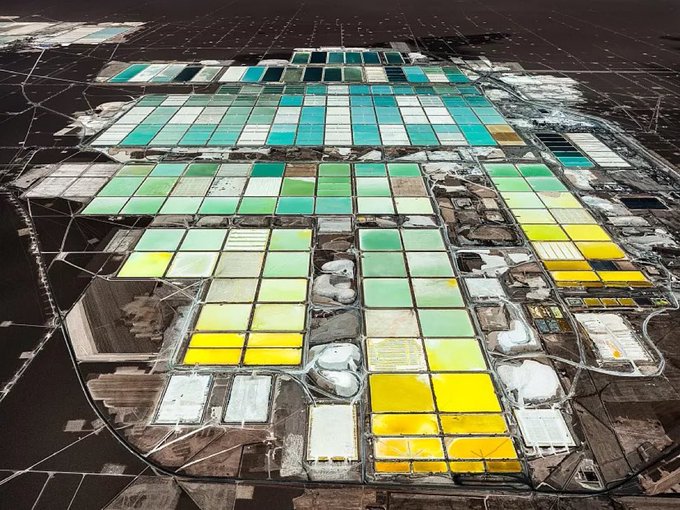
In an era where climate change dominates headlines and conversations from boardrooms to dinner tables, a critical examination reveals that the touted “green” solutions may be more about marketing than meaningful impact. The climate change industry, now worth a staggering $1.5 trillion annually, has crafted a narrative that is as compelling as it is questionable.
The urgency of addressing climate change is indisputable. With global temperatures rising, ice caps melting, and extreme weather events becoming more frequent, the need for action is clear. However, the solutions being sold to the public—solar panels, electric cars, and carbon offsets—may not be the panacea they appear to be. According to recent studies, the carbon footprint of producing these technologies often negates the environmental benefits they supposedly offer.
She raises a whole heap of inconvenient truths surrounding many net zero ‘solutions’.
— James Melville 🚜 (@JamesMelville) June 26, 2024
“These so-called green or ethical solutions aren’t solutions at all. Just very good marketing from the $1.5 trillion a year climate change industry.” pic.twitter.com/gj2wn9VowB
“These so-called green or ethical solutions aren’t solutions at all. Just very good marketing from the $1.5 trillion a year climate change industry.”
Rachel Matthews
Dr. Jane Mitchell, an environmental scientist at GreenTech Institute, argues that the push for green technologies is often driven by profit rather than genuine environmental concern. “The production of electric vehicles, for instance, involves the mining of rare earth metals, which has devastating ecological consequences,” she explains. “Moreover, the electricity that powers these vehicles often comes from non-renewable sources, making their net benefit negligible.”
The average lifespan of a solar panel is 25-30 years, and between 2030 and 2060, 9.8 million metric tons of solar panel waste is expected. A study found that solar panels create 300 times more toxic waste per unit of energy than nuclear power plants. Not only that, vast majority of mass-scale solar panels plastered on prime farmland will end up being destroyed by bad weather, leaking toxic chemicals into the soil or eventually ending up in landfill after 25 years.
This is not environmentalism.
— James Melville 🚜 (@JamesMelville) June 20, 2024
This is corporatism land grabbing. The vast majority of mass-scale solar panels plastered on prime farmland will end up being destroyed by bad weather, leaking toxic chemicals into the soil or eventually ending up in landfill after 25 years. pic.twitter.com/cQc4QOc21e
Additionally, mass-scale solar panels plastered on prime farmland will end up being destroyed by bad weather, leaking toxic chemicals into the soil or dumped in landfills after 25 years. This is the opposite of environmentalism.
This perspective is echoed by industry insiders who have seen firsthand the machinations of the climate change industry. John Reynolds, a former executive at a leading solar panel manufacturer, reveals, “Many companies are more interested in capitalizing on government subsidies and consumer goodwill than in making a real difference. The marketing is brilliant, but the impact is minimal.”

Lithium-ion batteries are used to power electric vehicles and many other products. Yet the environmental and community damage that is created to extract lithium is enormous. In Chile’s Atacama salt flats, lithium mining contaminates and diverts scarce water resources from local communities. The production of lithium uses 21 million litres of water per day.
The impact of these revelations could be far-reaching. Consumers, who are increasingly willing to pay a premium for green products, may start to question the efficacy of their purchases. This skepticism could lead to a significant shift in market dynamics, affecting everything from stock prices to regulatory policies.
This is not environmentalism.
— James Melville 🚜 (@JamesMelville) June 26, 2024
This is greedy corporatism land grabbing wrapped around the virtue-con trick of net zero. The vast majority of these mass-scale solar panels will destroy the soil and end up in landfills after 25-30 years. pic.twitter.com/1cegLxlyMV
Critics might argue that any step toward sustainability is better than none. However, opponents of the current approach, like environmental activist Lisa Carter, counter that half-measures may do more harm than good. “By promoting these so-called solutions, we’re diverting attention and resources from more effective strategies, such as systemic policy changes and large-scale renewable energy projects,” Carter asserts.
The debate is not just academic; it has real-world implications. As governments and corporations worldwide commit to ambitious climate targets, the question of how best to achieve these goals becomes ever more pressing. The current reliance on green technologies, without a corresponding investment in infrastructure and regulatory reform, may set us up for failure.
This isn’t to say that all green technologies are without merit. Sustainable agriculture, wind energy, and advances in battery storage offer promising avenues for reducing our carbon footprint. However, the emphasis must shift from superficial fixes to comprehensive solutions that address the root causes of climate change.
“The irony of being told that mining coal is bad for the planet, but mining copper, lithium and cobalt (which destroys natural environments and often uses child slave labour) for electric vehicles, wind turbines and solar panels is somehow saving the planet.”
James Mellville, @JamesMelville
For the average consumer, navigating this landscape can be challenging. The allure of a quick fix—whether it’s an electric car or a carbon offset program—is hard to resist. But as the scrutiny of the climate change industry intensifies, a more informed and discerning public could drive demand for genuinely effective solutions.
While the climate change industry has successfully marketed an array of green solutions, it is crucial to scrutinize their actual impact. The stakes are too high for us to be satisfied with anything less than real, measurable progress. As Dr. Mitchell aptly puts it, “We need to move beyond the hype and focus on what truly works, for the sake of our planet and future generations.”







